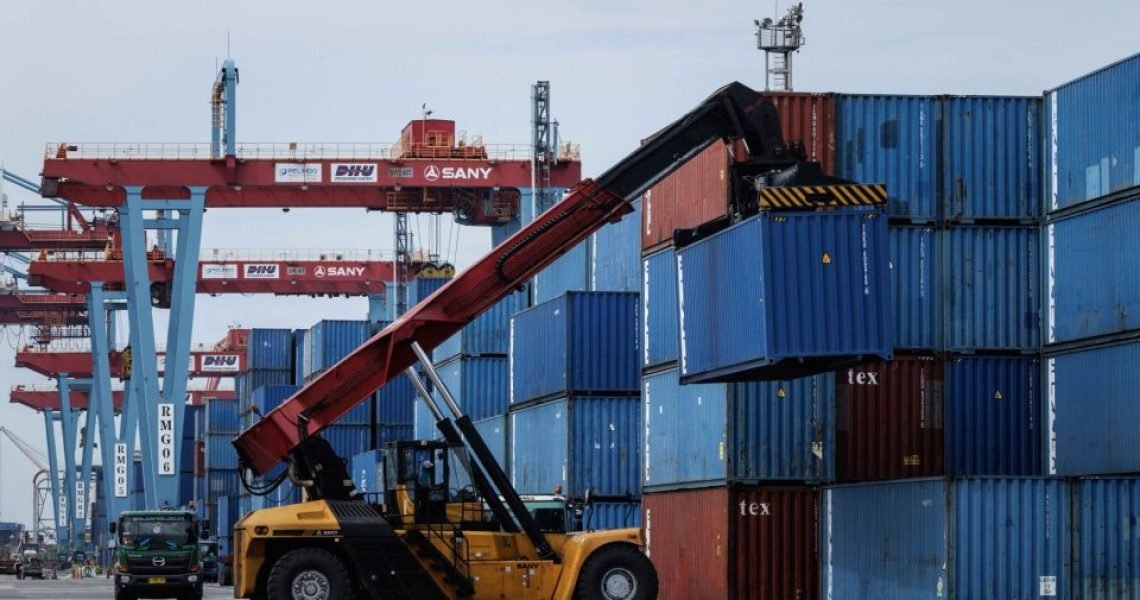🇲🇾 Malaysia Launches New Anti-Dumping Probe on PET Fibre Imports from China and Indonesia
The Ministry of Investment, Trade and Industry (MITI) of Malaysia has taken a strong stance in protecting its domestic manufacturing industry by initiating a new anti-dumping investigation into imports of polyethylene terephthalate (PET) synthetic fibres from China and Indonesia. The probe follows a formal petition by local manufacturer Recron (M) Sdn Bhd, part of the global polyester giant Reliance Group.
📘 What is an Anti-Dumping Duty?
An anti-dumping duty is a trade remedy imposed by a country to protect its local industries from unfair competition caused by imported goods sold at artificially low prices — often below their cost of production or lower than the price in their home markets.
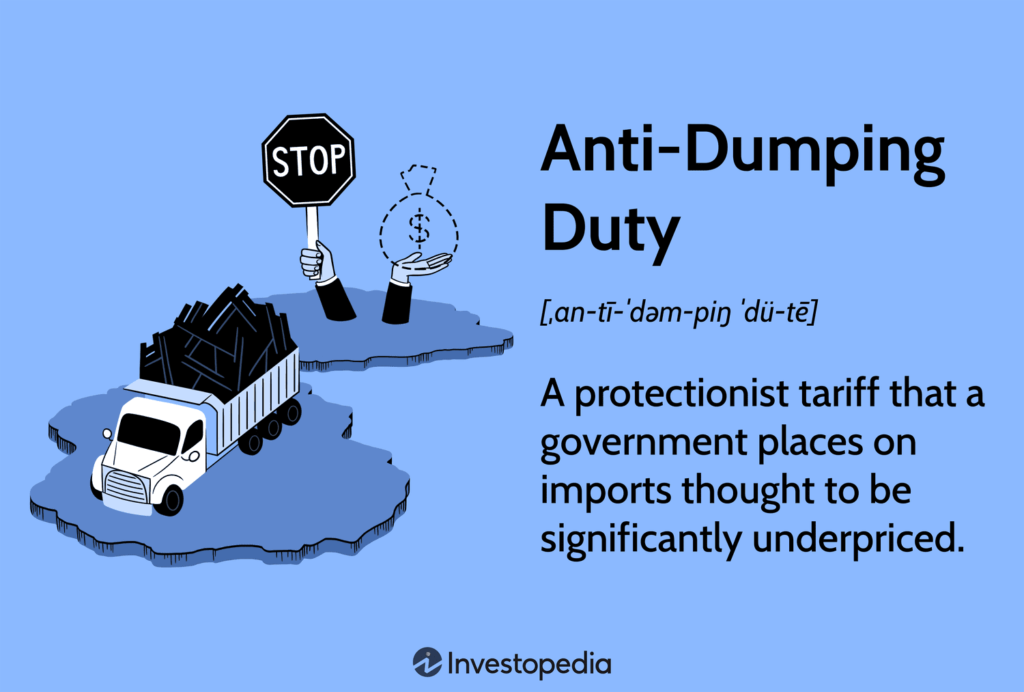
Here’s how it works:
- Let’s say a company in Country A (like China or Indonesia) exports a product to Malaysia at a price much lower than what it sells for in its own country.
- This practice is known as “dumping.”
- It can hurt Malaysian manufacturers, who can’t compete with such low prices.
- To level the playing field, the Malaysian government may investigate and — if dumping is proven — impose an extra tax (the anti-dumping duty) on those imports.
- This raises the cost of the dumped goods, making them less attractive compared to local products and protecting domestic businesses.
✅ Why Does It Matter?
- Protects local jobs and industries from unfair foreign competition.
- Ensures that trade remains fair and rules-based, especially in sectors like textiles, plastics, and metals.
- However, it can also increase prices for manufacturers and consumers if alternatives become limited.
🚨 Final Decision: Duties in Force for Five Years
Effective May 7, 2025, the Royal Malaysian Customs Department will begin collecting anti-dumping duties on PET imports at the following rates:
- Indonesia: 37.44%
- China: Between 2.29% and 11.74%
These duties will remain in effect for five years, ending on May 6, 2030.
The decision marks the final step in a trade remedy investigation initiated in August 2024 after a petition by Recron (M) Sdn Bhd, a key domestic PET producer and subsidiary of the global Reliance Group. Recron alleged that PET imports were being dumped — sold at artificially low prices — into the Malaysian market, undercutting local production and causing material injury to the domestic sector.
What’s Under Investigation?
The product in focus — PET synthetic fibre — is a versatile and widely used polymer in the polyester family, known for its durability and strength. It’s essential to the production of:
- Clothing and textiles,
- Packaging for food and beverages,
- Industrial thermoforming applications,
- And reinforced engineering resins when combined with glass fibre.
According to MITI, Recron (M) Sdn Bhd alleges that PET fibres originating from the People’s Republic of China and Indonesia are being imported at dumped prices — that is, sold below domestic market rates — causing material injury to Malaysia’s domestic PET fibre industry.
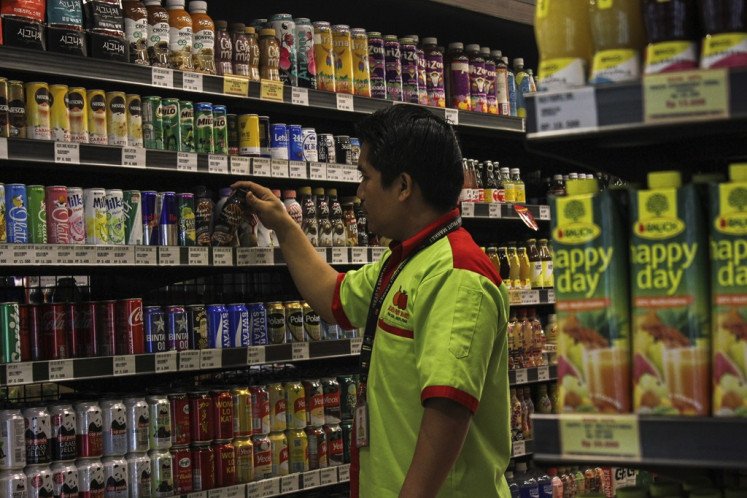
🧵 What is PET and Why It Matters
Polyethylene terephthalate (PET) is a strong, stiff synthetic fibre in the polyester family of polymers. Its applications span across industries, including:
- Textiles and clothing fibres
- Food and beverage containers
- Thermoformed packaging
- Engineering resins (especially when blended with glass fibre)
Given its industrial importance, price manipulation or unfair pricing in the PET market could have ripple effects on multiple sectors of the Malaysian economy.
Legal Grounds and Investigation Timeline
The investigation was initiated under:
- Section 20 of the Countervailing and Anti-Dumping Duties Act 1993, and
- Regulation 2 of the Countervailing and Anti-Dumping Duties Regulations 1994.
MITI confirmed that a preliminary determination will be made within 120 days from the date of the investigation’s launch on August 9, 2024. If the findings support the allegations, a provisional anti-dumping duty will be imposed to mitigate further harm to the domestic industry.
“If the preliminary determination is affirmative, the government will impose a provisional anti-dumping duty at the rate that is necessary to prevent further injury to the domestic industry.” — MITI
📜 Timeline of the Investigation
- August 2024: MITI begins investigation based on Recron’s complaint
- January 7, 2025: Provisional anti-dumping duties are imposed (ranging from 6.33% to 37.44%) for up to 120 days
- May 7, 2025: Final determination confirms dumping activity and imposes five-year duties
During the provisional period, interested parties — including exporters, importers, and trade associations — were invited to submit comments. MITI reviewed these alongside market data, trade flows, and pricing trends before making the final decision.
Steel Wire Imports Also Under Review
In addition to the PET fibre probe, MITI has also initiated an administrative review of anti-dumping duties on stranded steel wires for prestressing concrete from China. This follows an application from Southern PC Steel Sdn Bhd, a unit of Southern Steel Bhd, which claims that the dumping margin for these steel imports has changed substantially since the last review.
To recap:
- The original duties (ranging from 2.09% to 21.72%) have been in effect from December 25, 2021, to December 24, 2026.
- The new final determination on the steel wire review will be made within 180 days.
Why It Matters
These developments underscore Malaysia’s ongoing efforts to:
- Defend local manufacturers against unfair trade practices,
- Maintain competitive market conditions,
- And ensure alignment with global trade norms under WTO regulations.
Both the PET fibre and steel wire cases highlight the increasing vigilance within Southeast Asia’s industrial sectors amid shifting global supply chains, cost pressures, and growing trade protectionism.
💬 What MITI Says
In its statement, MITI affirmed:
“With the imposition of anti-dumping duties on the imports of subject merchandise from the alleged countries, it is expected that the issue of unfair trade practices will be addressed.”
This move is seen as a significant effort to level the playing field for Malaysia’s manufacturers, ensuring that domestic players are not unfairly pressured by foreign competitors engaging in predatory pricing.
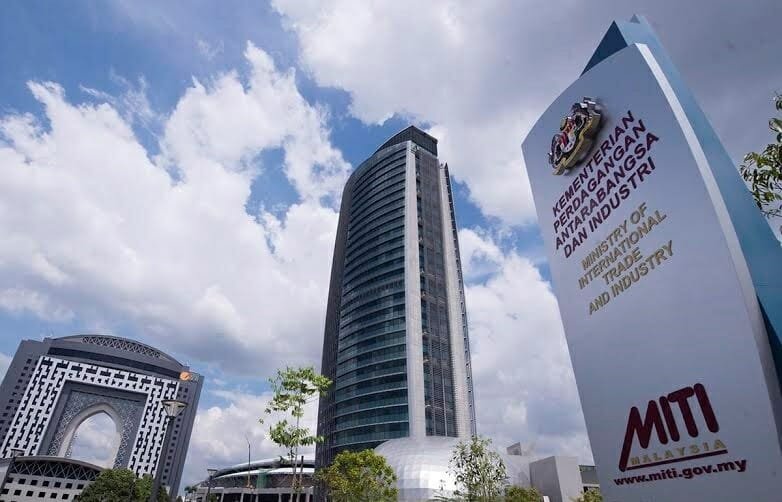
🌏 Regional Trade Implications
While anti-dumping duties are a legal mechanism under the World Trade Organization (WTO) framework, the decision may impact bilateral trade relations between Malaysia, Indonesia, and China. However, trade experts emphasize that these measures are standard practice globally and signal a maturing approach to trade defense by Malaysia.
Impact on ASEAN Trade Relations
Trade analysts warn that Malaysia’s move, though legal under WTO rules, may strain intra-ASEAN cooperation, especially as the region seeks a unified front against global trade disruptions.
Despite recent diplomatic efforts between President Prabowo and Malaysian Prime Minister Anwar Ibrahim to strengthen bilateral cooperation, actions like these highlight diverging economic priorities within the ASEAN bloc.
Experts have urged both nations to prioritize dialogue and transparency in future trade actions to avoid triggering retaliatory policies that could harm broader economic growth.
🇲🇾🇮🇩 PET Trade Tensions Rise: Indonesia May Take Malaysia’s Anti-Dumping Duty to WTO
A new trade dispute is brewing in Southeast Asia as Malaysia’s recent imposition of anti-dumping duties on imported polyethylene terephthalate (PET) from Indonesia and China has triggered serious concern in Jakarta. Indonesia’s Trade Ministry has announced it will monitor the situation closely and may consider filing a complaint with the World Trade Organization (WTO) if deemed necessary.
What Prompted the Anti-Dumping Duty?
On May 7, 2025, Malaysia’s Ministry of Investment, Trade and Industry (MITI) enforced a five-year anti-dumping duty on PET imports following an investigation initiated in August 2024. The decision came after a Malaysian PET producer filed a complaint, alleging that imports from Indonesia and China were being sold at prices significantly lower than domestic market rates—causing material injury to local manufacturers.
Malaysia now imposes a 37.4% duty on Indonesian PET, while Chinese PET faces duties ranging from 2.3% to 11.7%. These tariffs will remain in effect until May 6, 2030.
What Is PET and Why Does It Matter?
PET (polyethylene terephthalate) is a transparent thermoplastic polymer used extensively in packaging materials for food, beverages, and textiles. As a critical component in the global plastics industry, any disruption in its trade has downstream consequences, particularly for the food and beverage, textiles, and petrochemical sectors.
Indonesia’s Concerns and Possible WTO Action
Djatmiko Bris Witjaksono, Director General of International Trade Negotiations at Indonesia’s Trade Ministry, confirmed that the government is evaluating both the procedural and substantive merits of Malaysia’s action. Legal proceedings at the WTO remain on the table if Indonesia concludes that the duty violates trade norms.
Krisna Gupta, Senior Fellow at the Center for Indonesian Policy Studies (CIPS), urged the Indonesian government to immediately request the investigation documents from Malaysia’s MITI and begin formal consultations. He emphasized that while anti-dumping duties are allowed under WTO rules, how the case is presented is key to a favorable resolution.
Domestic Industry Backlash in Indonesia
Andry Satrio Nugroho of the Institute for Development of Economics and Finance (Indef) criticized the Indonesian government for not doing enough to defend its domestic PET industry, which has faced similar dumping accusations without receiving protective tariffs. The lack of defensive measures, he argues, has made local PET manufacturers less competitive both at home and abroad.
According to Andry, the new Malaysian duty could cause ripple effects in Indonesia’s petrochemical industry, possibly leading to job losses if local producers struggle to find alternative markets.
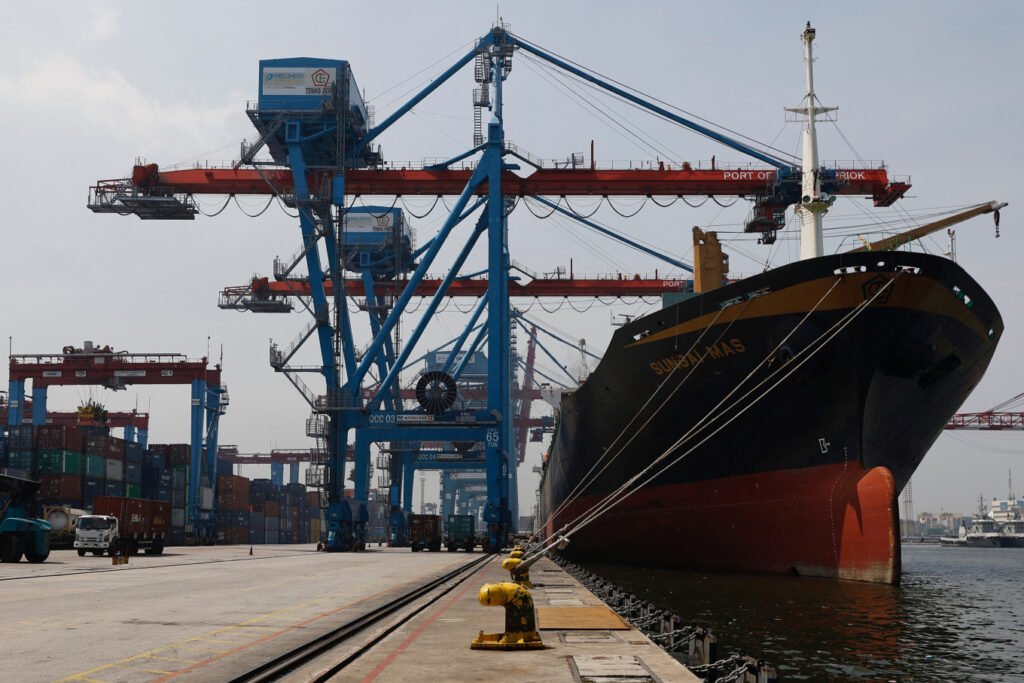
Regional Tensions and the ASEAN Dilemma
While the imposition of anti-dumping duties is legal under WTO and GATT frameworks, the move could test the unity of ASEAN member states, especially at a time when the bloc is working to strengthen internal trade in response to rising global protectionism.
Malaysia’s decision also comes amid efforts to strengthen bilateral ties. In recent calls between Malaysian Prime Minister Anwar Ibrahim and Indonesian President Prabowo Subianto, both leaders reaffirmed their commitment to economic cooperation. Yet, the imposition of tariffs signals conflicting national priorities that could hinder intra-ASEAN coordination.
What’s Next?
Experts agree that open dialogue is essential before escalating trade disputes to international courts. Both sides are expected to explore diplomatic solutions, though the possibility of WTO action cannot be ruled out if the issue remains unresolved.
This case highlights the increasingly complex landscape of regional trade, where national interests, legal trade tools, and economic cooperation often collide.
📌 Final Thoughts
The enforcement of these duties highlights Malaysia’s commitment to protecting its domestic industries from unfair global trade practices. For local manufacturers, this decision brings a more balanced market environment. For importers and exporters, it serves as a reminder of the importance of compliance with international trade norms and transparent pricing.
Malaysia’s anti-dumping duties on Indonesian PET imports have sparked regional concern and may escalate into a formal trade dispute at the WTO. As both countries weigh their next steps, the case serves as a reminder of the challenges ASEAN faces in reconciling national economic interests with regional unity in an increasingly protectionist global trade environment.
Stay tuned with us for more updates on trade policies, anti-dumping actions, and industrial news in Malaysia and the region.
Supporting Fair Trade with Local Excellence – Introducing Lux Metal
At Lux Metal, we fully support fair trade practices and the protection of Malaysia’s local manufacturing industry. As a leading provider of customized metal fabrication services in Malaysia, Lux Metal is committed to:
✅ Precision stainless steel works
✅ Advanced CNC machining
✅ Customized structural and industrial metal solutions
✅ End-to-end service from design to delivery
Whether you’re in construction, manufacturing, or industrial sectors, we’re here to provide cost-effective, reliable, and high-quality fabrication — helping Malaysian businesses stay competitive in a globalized economy.
🔗 Explore our services at Lux Metal
📞 Contact us for tailored solutions to your project needs

